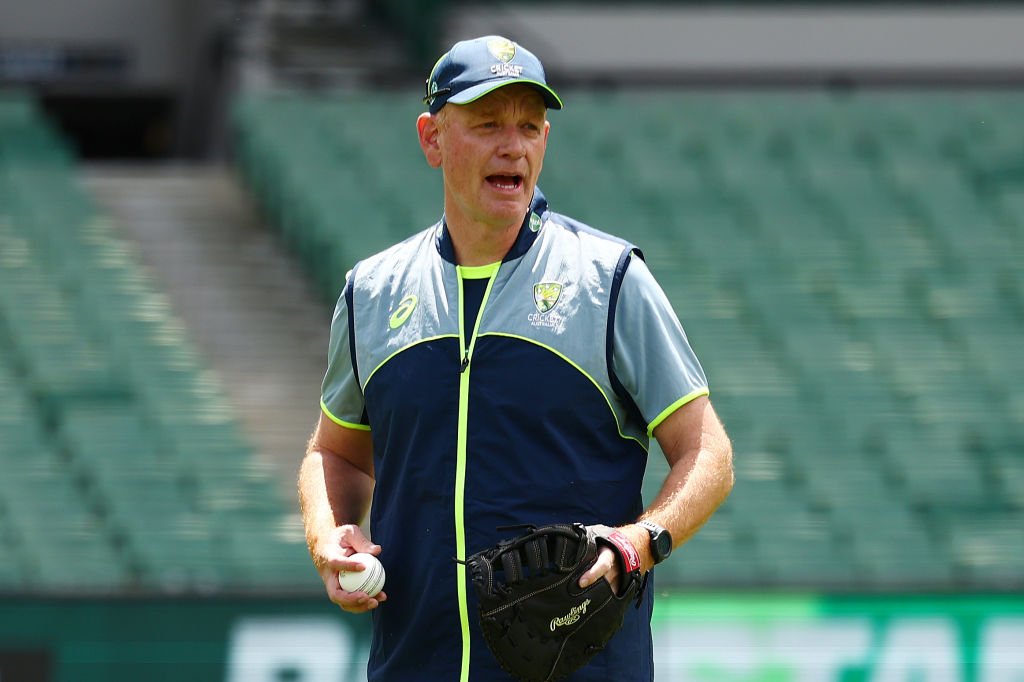
Australia’s head coach, Andrew McDonald, has doubled down on his commitment to an aggressive playing style, even after recent challenges. McDonald’s tenure, marked by a balance of innovative coaching and intense gameplay, has driven Australia’s men’s cricket team to numerous accomplishments. However, the team’s recent performance in Adelaide has sparked questions about his approach. McDonald, undeterred, affirms his faith in the team’s strategic direction, aiming to harness lessons from the Adelaide setback to refine their game, especially as they prepare for key upcoming series.
Since his appointment, McDonald has consistently advocated for an attacking style that prioritizes dynamic field setups and high-pressure plays. This philosophy has helped players build confidence, pushing them to be relentless on the field. It’s also underscored by his belief in adapting quickly, often recalibrating tactics to counter opponents’ strengths. Notably, the team has thrived under his leadership, including winning the ICC World Test Championship, retaining the Ashes in England, and making a formidable showing in various formats.
McDonald’s recent contract extension, lasting through 2027, highlights Cricket Australia’s confidence in his methodology. He has been particularly focused on fostering a player-driven environment, one that encourages collaboration, autonomy, and responsibility. This emphasis is seen in how he manages senior players, with stars like Pat Cummins, Steve Smith, and Glenn Maxwell given roles that leverage their experience to mentor younger talent. With this strategy, McDonald seeks to create a team that embodies resilience and adaptability, two traits he believes are essential for maintaining Australia’s competitive edge.
McDonald’s assertive approach was put to the test with the Adelaide setback, where Australia’s execution fell short. The performance raised concerns about the consistency and effectiveness of the aggressive stance, especially when players encountered challenging conditions. McDonald responded by reasserting his belief that a steadfast focus on aggression is crucial for long-term success. According to him, setbacks provide valuable insights that allow teams to fine-tune strategies, learn, and ultimately grow stronger. This philosophy of learning from losses, McDonald suggests, has been instrumental in his coaching and a critical factor in shaping the team’s resilience.
This incident is not the only recent challenge the team has faced. Glenn Maxwell, a key figure in the Australian side, encountered scrutiny following a personal incident in Adelaide, which underscored the unique pressures players face off the field. McDonald addressed this directly, stressing that maintaining discipline and personal accountability are essential. While supporting Maxwell, McDonald made it clear that personal conduct matters as much as on-field performance, especially given the demanding schedules that professional players endure. This transparent communication between McDonald and his players highlights a core aspect of his leadership style—holding players accountable while offering support through difficult times.
Looking forward, Australia’s tight schedule through the next several years—including a historic one-off Test against England in 2027—adds further pressure on the team to perform consistently. McDonald has taken this into account, implementing rigorous training programs designed to help players remain at their peak while minimizing burnout. In his view, physical conditioning and mental preparedness go hand in hand with an aggressive style, enabling players to respond swiftly to high-stakes scenarios.
With the team preparing for a limited-overs series against Pakistan, McDonald remains resolute in his commitment to an aggressive playbook, believing it to be essential for securing future titles. The team’s success, he argues, hinges on cultivating a bold mindset that’s unafraid of taking calculated risks. By continuously pushing the envelope, McDonald hopes to foster a squad capable of reclaiming the prestigious Border-Gavaskar Trophy and achieving an away Ashes victory in 2027.
McDonald’s confidence in this strategy is reflected in Cricket Australia’s support, with the recent contract extension signaling their alignment with his vision. The extension not only solidifies his role but also underscores Cricket Australia’s commitment to nurturing a sustainable, performance-driven culture within the team. In McDonald’s words, this approach demands continuous improvement and an unyielding focus on aggressive yet adaptable gameplay, a philosophy he is determined to uphold despite any hurdles.
While challenges will undoubtedly arise, Andrew McDonald’s response to the Adelaide setback is emblematic of his unwavering commitment to aggressive cricket. As Australia gears up for a demanding international schedule, McDonald’s vision, supported by a robust team structure, will continue to play a pivotal role in shaping Australia’s performance on the world stage. Through an approach that balances high expectations with accountability, McDonald aims to lead Australia to sustained success, one aggressive play at a time.

